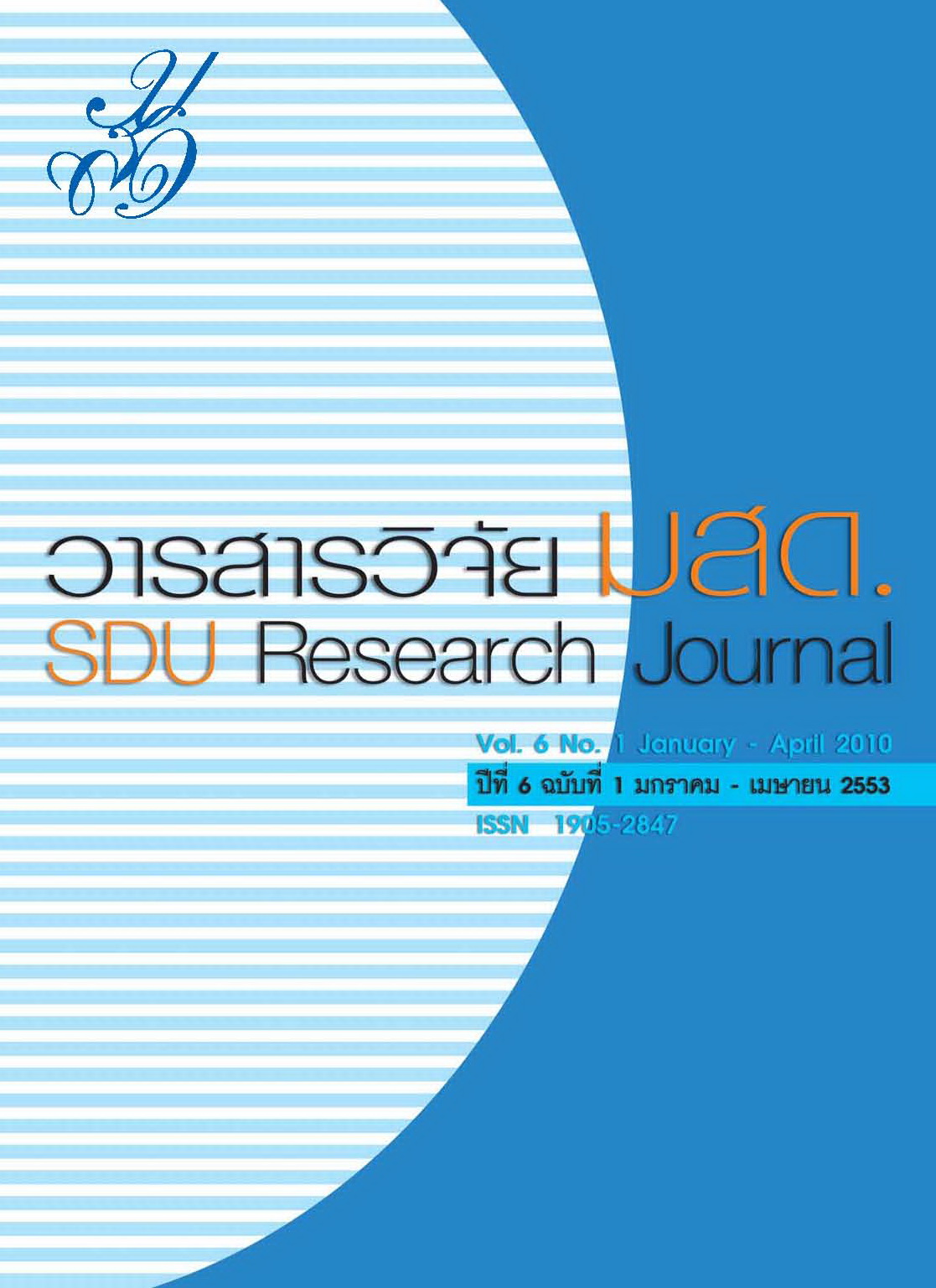แนวทางพัฒนาการจัดการธุรกิจครอบครัวไทยในอุตสาหกรรมต่อตัวถังรถยนต์โดยสารบ้านโป่ง
Abstract
Abstract
The objectives of this research were (1) to study the development and pattern of Thai family businessmanagement in Ban Pong bus body construction industry starting from the time in which the founders startedworking as day-by-day laborers and then accumulated their experiences and capital until they could hire workersand set up their own family business and managed it until their children could take over the businessmanagement; (2) to study problems of and obstacles for Thai family business management in Ban Pong busbody construction industry comprising problems and obstacles on the personnel, financial, production, marketing,economic, social, political, cultural, and competition aspects; and (3) to present development guidelines for Thaifamily business management in Ban Pong bus body construction industry by integrating theories, concepts, andresearch findings for synthesizing a prototype model for Thai business management in Ban Pong bus bodyconstruction industry. This research employed the mixed method of quantitative and qualitative researchmethodologies. In the qualitative research methodology, in-depth interviews were conducted with 23 bus bodyconstruction entrepreneurs in Ban Pong District. In the quantitative research methodology, a questionnaire wasemployed to collect data from a sample of 136 entrepreneurs. Statistics for data analysis in the quantitativestudy were the percentage, mean, and standard deviation. Research findings revealed that the development andpattern of Thai family business management in Ban Pong bus body construction industry started with thefounders working as day-by-day laborers and accumulated their experiences. After that, they quitted the job andset up their own business as construction contractors. Since there were few competitors at that time, they sawthe opportunity for setting up their own bus body construction plant. As for the business management pattern,it was managed as a family business by treating employees as members of the family. When the business waspassed down to their children, business management had to adapt and change with division of work lines inorder to survive. However, the management was still conducted in the family management style with helps fromrelatives. Problems and obstacles comprised those on the aspects of personnel, finance, production, marketing,economic matters, social matters, political matters, culture, and competition affecting the business. Examples of problem solutions undertaken by entrepreneurs included the following: On personnel problems, the solutionswere chatting and conversation for proper communications, and providing appropriate welfare. On financialproblems, the solution was the study and analysis of financial needs. On marketing problems, the solutions wereproviding additional training, and application of proactive marketing strategies. As for development guidelinesfor Thai family business management in Ban Pong bus body construction industry, the POLC (Planning,Organizing, Leading, Controlling) Management Theory was integrated with çMR LICENSEé (Mastery,Responsibility, Leadership, Innovation, Corporate Culture, Excellence, Network, System) Model and Enthusiasmto provide guidelines for business management development to achieve the goals of the Thai family business.








